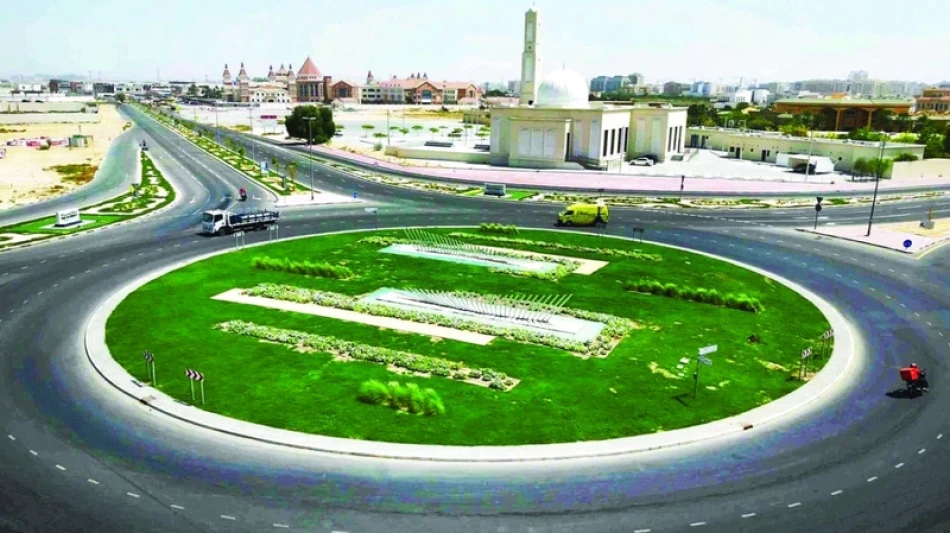
Dubai Residents Complain of Offensive Odors, Municipality Unveils Action Plan to Address Issue
Residents across several Dubai neighborhoods are dealing with persistent foul odors that have plagued their communities for years. The smell forces families to keep windows shut even during pleasant weather and creates embarrassing situations when hosting guests. Dubai Municipality has acknowledged the issue and announced plans to upgrade the Warsan sewage treatment plant, but residents say they need faster action.
The affected areas include Nad Al Sheba 4 and Al Warqa districts, where families report the odors are strongest at night and during winter months. Mohammed Abdullah, who moved to Nad Al Sheba 4 in 2021, says the smell regularly penetrates his home despite constant use of air fresheners and cleaning products.
"This problem has ruined the joy of moving into the house I built for my family and three children," Abdullah said. "We face major embarrassment when receiving guests, and the temporary solutions we try don't last long."
Um Abdullah, a 13-year resident of the same area, says the problem spans many years. "We don't know the exact source of the odors since we're not specialists, and this area is far from places you'd expect such issues," she explained. The smell intensifies during evening hours and can last for hours, making it difficult for families to sleep or feel comfortable in their homes.
The issue extends beyond residential areas. Ahmed Ibrahim, who works in Al Warqa, says restaurant and cafe customers on Algeria Street face the same problem at night. "The odors are so strong that restaurant workers can't open windows or terraces during winter months," he noted. "People can't eat properly when the smell spreads, and park visitors avoid exercising at certain times due to fears of respiratory problems."
Several residents from Al Warqa 3 and 4 describe the odor as similar to sewage or waste, occurring at different times throughout the day but worsening in winter. Hamda Ahmed from Al Warqa 3 says her family must seal doors tightly when the smell enters their home, especially at night.
"Many people have discussed this problem on radio programs, but without results," Ahmed said. "We haven't filed formal complaints because others have tried without success."
Asma Linjawi, another Al Warqa 3 resident, says the timing has expanded from just after 10 PM to multiple periods including dawn, evening, and afternoon. "Our suffering increases in winter because after rainfall improves the weather, the odors suddenly appear and waste the beautiful moments we were waiting for to enjoy outdoor gatherings."
Dr. Suhail Al Ghafli, an environmental science professor at Zayed University, identifies six main causes for the odors. The primary reason is nearby sewage treatment plants, particularly the Warsan facility near Al Warqa, where heat and humidity intensify emissions.
Other factors include insufficient operational capacity at treatment plants, biological processing that releases methane and sulfur gases, wind direction that carries odors during evening and dawn hours when air is stable, poor maintenance leading to leaks and treatment delays, and agricultural waste from farms in areas like Al Khawaneej and Al Awir.
"Some treatment plants operate beyond their adequate capacity, causing increased emissions from untreated materials," Al Ghafli explained. "Wind plays a major role in increasing the concentration and spread of these odors."
Dubai Municipality has responded with a comprehensive development plan for the Warsan sewage treatment plant to match the emirate's rapid urban growth and population increase. The municipality says it will introduce advanced sustainable technologies for sewage treatment and implement fully automated smart systems to monitor and operate the plant.
The upgrades have already increased the plant's daily capacity from 325,000 cubic meters to 500,000 cubic meters, with ambitious plans to reach 800,000 cubic meters daily by 2030. The municipality says these improvements will significantly reduce odor emissions and ensure a safe, healthy environment for the community.
But residents remain skeptical about the timeline. Um Mohammed, a local resident, says people filed complaints with the municipality years ago and received promises of a plan to address the odors, but no actual measures were taken. She suspects the Warsan waste conversion station, located near Al Warqa 4, is the likely source of emissions that spread to nearby residential areas.
Makkiya Al Rais, who moved to Al Warqa 4 in 2011, notes that odor intensity increases with higher humidity levels. She suggests relocating waste treatment plants farther from residential areas, pointing out that Dubai's urban expansion requires reconsidering the distribution of some service facilities.
"Gas emissions from these plants may not show immediate health effects, but they could cause long-term damage, especially with continuous inhalation over years," Al Rais warned.
The situation highlights the challenges facing rapidly growing cities where infrastructure must keep pace with development. While Dubai Municipality's expansion plans address capacity issues, residents want faster action on odor control measures that could provide immediate relief while longer-term upgrades are completed.
Most Viewed News

 Sara Khaled
Sara Khaled






